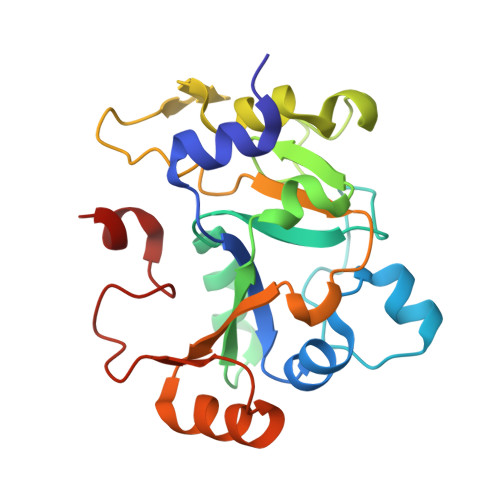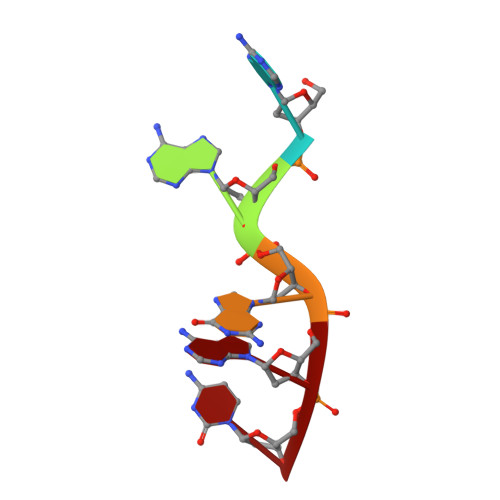Molecular basis for the reversible ADP-ribosylation of guanosine bases.
Schuller, M., Raggiaschi, R., Mikolcevic, P., Rack, J.G.M., Ariza, A., Zhang, Y., Ledermann, R., Tang, C., Mikoc, A., Ahel, I.(2023) Mol Cell 83: 2303
- PubMed: 37390817
- DOI: https://doi.org/10.1016/j.molcel.2023.06.013
- Primary Citation of Related Structures:
8BAQ, 8BAR, 8BAS, 8BAT, 8BAU - PubMed Abstract:
Modification of nucleic acids by ADP-ribosylation is catalyzed by various ADP-ribosyltransferases, including the DarT enzyme. The latter is part of the bacterial toxin-antitoxin (TA) system DarTG, which was shown to provide control of DNA replication and bacterial growth as well as protection against bacteriophages. Two subfamilies have been identified, DarTG1 and DarTG2, which are distinguished by their associated antitoxins. While DarTG2 catalyzes reversible ADP-ribosylation of thymidine bases employing a macrodomain as antitoxin, the DNA ADP-ribosylation activity of DarTG1 and the biochemical function of its antitoxin, a NADAR domain, are as yet unknown. Using structural and biochemical approaches, we show that DarT1-NADAR is a TA system for reversible ADP-ribosylation of guanosine bases. DarT1 evolved the ability to link ADP-ribose to the guanine amino group, which is specifically hydrolyzed by NADAR. We show that guanine de-ADP-ribosylation is also conserved among eukaryotic and non-DarT-associated NADAR members, indicating a wide distribution of reversible guanine modifications beyond DarTG systems.
- Sir William Dunn School of Pathology, University of Oxford, Oxford, UK.
Organizational Affiliation:




















